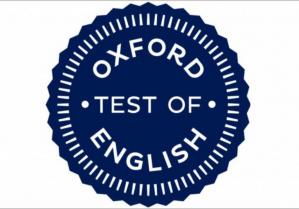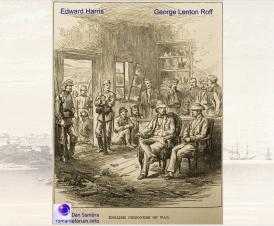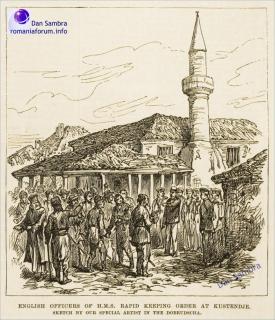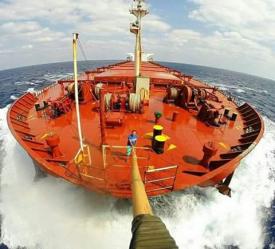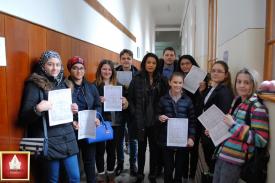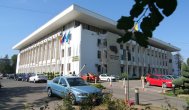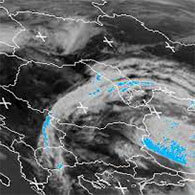Address by Mr. Bogdan Aurescu, State Secretary for European Affairs at the seminar "Conflict Prevention and Peacebuilding in the EU's Eastern Neighbourhood and the Western Balkans"
Address by Mr. Bogdan Aurescu, State Secretary for European Affairs at the seminar "Conflict Prevention and Peacebuilding 1314
Marime text
1314
Marime text
Bucharest, Tuesday, 28 June 2011
Excellencies,
Distinguished Invitees,
Ladies and Gentlemen,
It gives me great pleasure to welcome you on this seminar on "Conflict Prevention and Peacebuilding".
We all gathered in Bucharest for these discussions in an attempt to add fresh, new approaches to our collective commitment to promote and support the stabilisation and reconstruction in countries and societies in need. It has become a common practice for the MFA to meet the representatives of Romanian academics and think-tanks specialized on foreign and European affairs and the presence here, among our distinguished guests, of so many important senior policy experts and planners marks this event as a truly impressive one.
But, first of all, let me express my personal gratitude to our friends at the European Commission, the European Peacekeeping Liaison Office and the European External Action Service for believing in this project and for all the help they so kindly provided.
Distinguished Guests, Dear Friends,
Just a week ago, in the latest Foreign Affairs Council Conclusions of 20 June, we have seen a new acknowledgement of the importance of our field of action as the representatives of the 27 member states declared that "preventing conflicts and relapses into conflict, in accordance with international law, is a primary objective of the EU's external action, in which it could take a leading role".
Romania is a strong supporter of an increased role for the EU on the international scene, as well as for a more effective external action of the Union. With Lisbon now into force for more than a year and a half, it is time to move on from the EU's introverted decade of institutional introspection and turn to implementing the pressing task of making the EU a relevant global player. It is our view that the impact of the Lisbon Treaty on the institutional architecture of the Common Foreign and Security Policy (CFSP) should lead to more coherence, efficiency and transparency in the overall EU external action.
There is a need for more structure and coherence in an area where already there's a considerable amount of substance but not a particularly high level of convergence or pragmatism. Part of this process of reinforcing the EU external policies stands with the EEAS and, in this context, we also salute the current strategic review on the EU's relations with its neighbourhood.
The Union needs to develop a more practical, result-oriented dialogue with its immediate neighbourhood, particularly with the countries in Eastern Europe and the Western Balkans.
There's a troubling risk of deprioritising the Eastern neighbourhood: these countries share a European vocation and aspiration. We should have in mind the wider perspective and acknowledge that the Southern neighbours just seem to have started on a path on which most of our Eastern partners have already embarked upon a long time ago.
Ladies and Gentlemen,
As some of you have been aware, Romania already plays a significant part in the international efforts for conflict resolution and civilian crisis management. This contribution has gained an increased significance as, joining the EU, Romania's civilian capabilities assumed the policy framework and objectives of the Common Security and Defence Policy.
In this sense, Romania has constantly been ranked, over the past years, amongst the top three EU contributors with civilian capabilities to CSDP operations, most of which have a significant post-conflict reconstruction dimension (EULEX Kosovo, EUPM, EUMM Georgia, EUPOL Afghanistan, EUBAM R. Moldova/Ukraine etc.).
As we speak now Romania is no.1 as contributor among EU member states in number of experts deployed in civilian missions. This is a remarcable achievement after only four years since Romania's accession to EU.
Now, building on this and in order to multiply the effects of our participation, we are joining the camp of those advancing the idea of a crisis management interagency capability, with an emphasis on the civilian capacities.
We also seek to achieve further improvement through a more structured approach in the area of deployment, particularly with regard to the training of personnel and the process of generating mission specific resources. The Romanian MFA has long facilitated the sharing of conflict resolution knowledge and experience (through regular training courses and international seminars and conferences, such as this one) and has been increasingly acknowledged as a regional pole of expertise in peace operations. Quite recently, in fact, we have taken a step further in this field by formally establishing within the MFA a Training Centre for Post-conflict Reconstruction.
Distinguished Invitees, Ladies and Gentlemen,
In a world defined by networks and systems of systems, it has become essential to create and make the most of synergies between partners and, in this sense, initiatives such as this one help generate a framework for our common conceptual and operational efforts. I commend all of you involved in the front line of the efforts on reconstructing the lives of others. You are doing a really wonderful work and I wish that you all keep up this pace.
I wish you all, once again, a warm welcome to Bucharest, to our conference and that you have the most fruitful outcomes possible.
Urmareste-ne pe Grupul de Whatsapp
 Fondul Documentar Dobrogea de ieri și de azi
Fondul Documentar Dobrogea de ieri și de azi





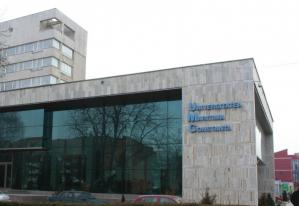
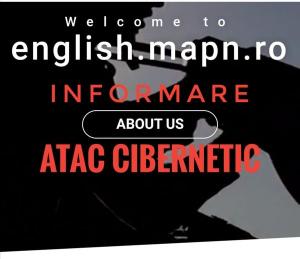
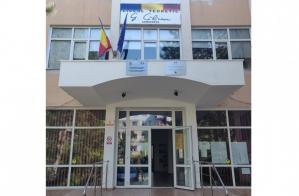
_thumb2.jpg)

